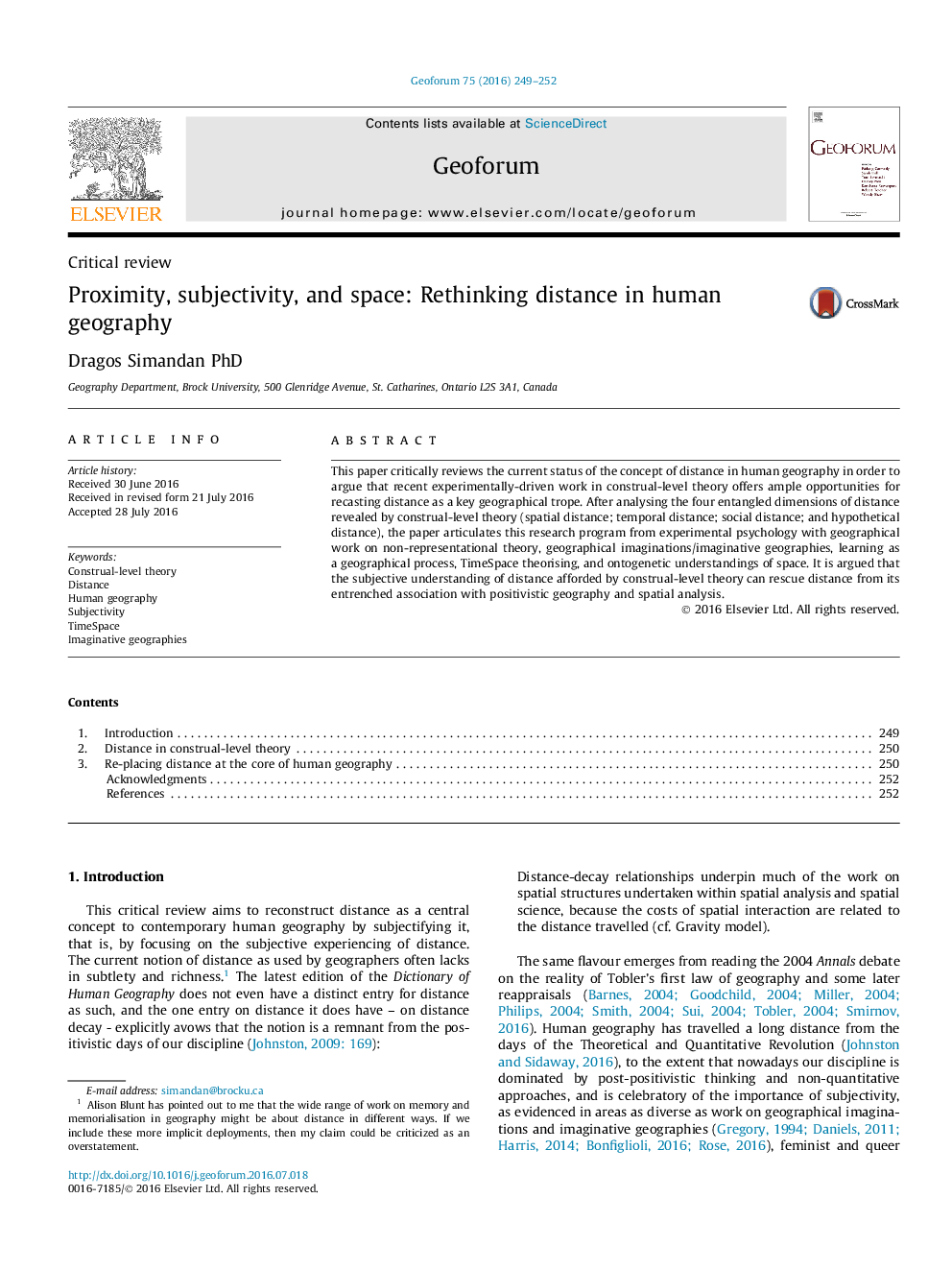| Article ID | Journal | Published Year | Pages | File Type |
|---|---|---|---|---|
| 5073378 | Geoforum | 2016 | 4 Pages |
Abstract
This paper critically reviews the current status of the concept of distance in human geography in order to argue that recent experimentally-driven work in construal-level theory offers ample opportunities for recasting distance as a key geographical trope. After analysing the four entangled dimensions of distance revealed by construal-level theory (spatial distance; temporal distance; social distance; and hypothetical distance), the paper articulates this research program from experimental psychology with geographical work on non-representational theory, geographical imaginations/imaginative geographies, learning as a geographical process, TimeSpace theorising, and ontogenetic understandings of space. It is argued that the subjective understanding of distance afforded by construal-level theory can rescue distance from its entrenched association with positivistic geography and spatial analysis.
Related Topics
Social Sciences and Humanities
Economics, Econometrics and Finance
Economics and Econometrics
Authors
Dragos PhD,
